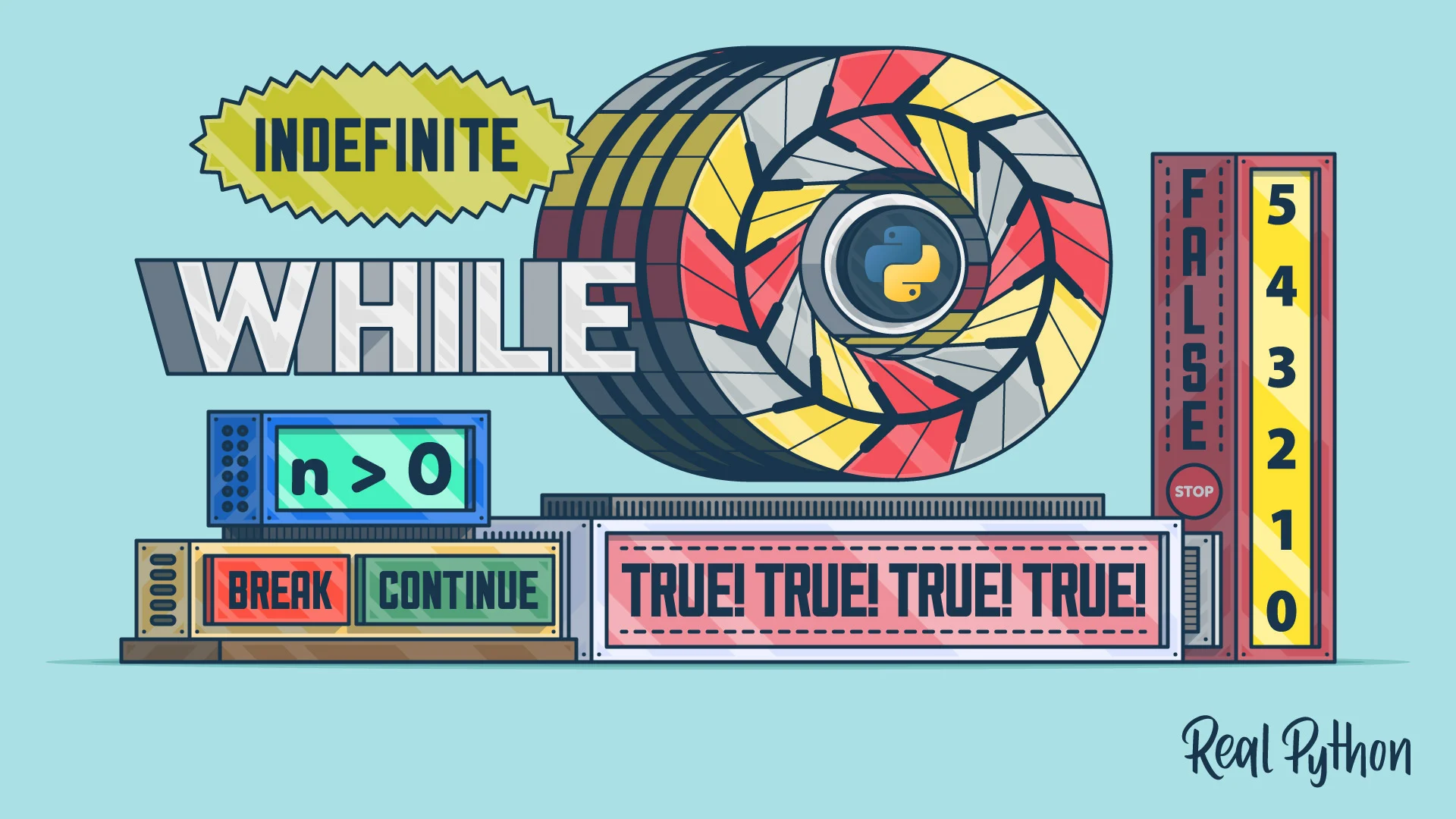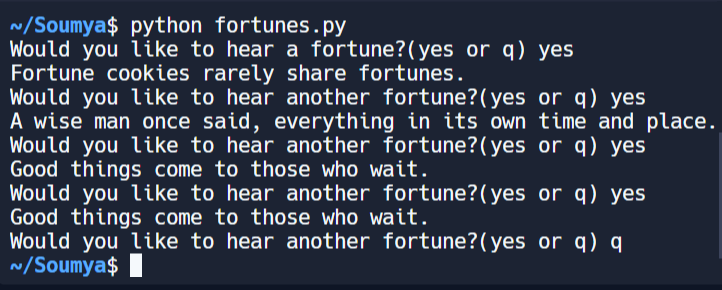While Loops

While loops are another conditional statement. In a while loop, the code is executed until a certain condition is met. After the condition is no longer true, the loop will stop executing and the program will go to the next line of code after the loop. These types of loops are seen most commonly in games. In most games, there is a main game loop that keeps iterating until the player dies or quits.
While loops are a type of indefinite iterating loop, meaning there is no specified number of iterations the loop will
make. It will keep iterating until something makes the condition false and breaks the loop. Because of this, it is very
common to get stuck in an infinite loop, in which the program will keep running and there will be no way to break out
of the loop. If this happens, just use Ctrl+C to stop running the program.
Here is an example of a while loop:
import random
number = random.randint(0, 100)
chances = 5
answer = int(input("The computer picked a number between 1 and 100. You have 5 chances to guess the number.\nGuess a number between 0 and 100: "))
while(answer != number):
if(chances == 0):
print("You ran out of guesses. The correct number was ", number)
break
elif(answer > number):
answer = int(input("Your guess was greater than the number. Please guess again: "))
chances -= 1
elif(answer < number):
answer = int(input("Your guess was lower than the number. Please guess again: "))
chances -= 1
elif(answer == number):
print("You guessed the correct number, ", number, "in ", 5-chances, "tries!")
break
This is a guessing game where the computer picks a random number and the user has to try to guess what it is in the fewest amount of guesses possible. The first couple of lines set up the game(picking the number to guess, setting the number of chances, and giving instructions to the user). The while loop, which is also a game loop, starts on the fifth line. It says while the user's answer is not the same as the computer's random number, keep iterating through this game loop. Then there are a bunch of conditionals that check for different things in the program. The first one checks to if the user has enough guesses to keep playing. If not, the program will tell them that they ran out and what the secret number was. The next two conditionals account for guessing higher or lower than the actual number, and giving the user feedback accordingly. Each time the user guesses wrong, the number of chances they have decreases by one. The last conditional checks for when the user correctly guesses the secret number, after which, the game loop/while loop will end.
Another important thing to note is the break keyword. That tells the program to break the loop, regardless
of what was happening in the program at the time. This is useful to make sure you don't accidentally write an
infinity loop.
Fortune Cookie Program
To practice, your goal is to write a program that gives the user fortunes. It will ask the user if they want to hear a fortune, and if they say yes, it will give them one. It iwill keep asking this unitl the user says they don't want to hear another fortune.
- Create a list of fortunes. If you don’t want to make one, you can use this one to save yourself the typing:
- Create a while loop that will quit when the user says ‘q’
- In the while loop, print a random fortune and ask the user if they want to hear another one.
fortunes = ["Good things come to those who wait.", "Patience is a virtue.", "The early bird gets the worm.", "A wise man once said, everything in its own time and place.", "Fortune cookies rarely share fortunes."]
Here is an example of what your program should look like:
